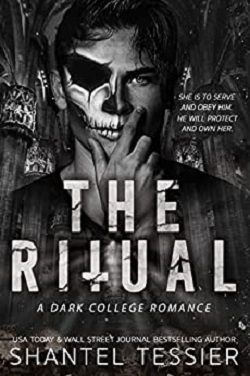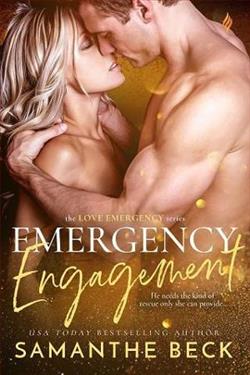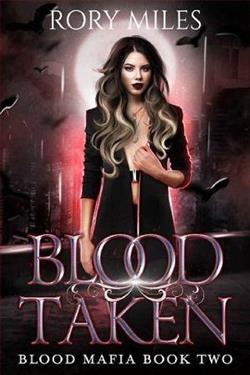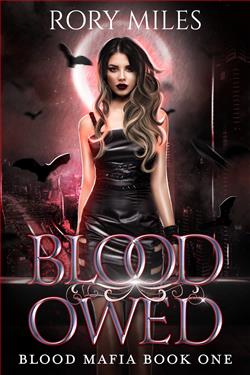Page 1 of How to Tempt An Earl
Chapter One
Late August, London, 1826
Kieran Parkhurst had set a personal attendance record: two churches in less than two days. Usually, he was lucky to set foot in a church once a year for Christmas, and that was only to please his mother. Sentiments of faith and hope had no place in the world he inhabited. Kieran swung off his horse in front of St Luke’s—OldSt Luke’s, to be precise, and he was always precise. Details saved lives.
He patted the sweat-soaked shoulder of his horse. They’d ridden hard and fast, straight from his brother’s wedding in West Sussex. Now, Tambor was as lathered as he. Kieran wiped a hand across his brow. He wouldn’t mind a bit of Christmas at the moment, given the state of the London weather, which was so hot and humid that one’s clothes stuck to one’s back after the slightest physical exertion, and his exertions had not been slight. He wondered if he smelled as bad as he looked—probably—but there was nothing to do about it now.
He squinted up at the stone church with its tower and ordinal chapels, wondering if his contact had already arrived. Given the choice, he preferred to take possession of the ground first in his encounters, but there was no question of dashing in and claiming his ground just yet; his horse took priority. Grandfather’s urgent business for the Crown would have to wait a few minutes more; he wouldn’t leave Tambor outside, sweating in the heat without care. His horse needed water. There must be some nearby… Ah yes, there was, next to the church.
He led Tambor to an elevated water trough and flipped a coin to the desperate-looking urchin who stood beside it. The boy’s eyes, too big for his thin face, lit up. That coin would mean bread for a week. Kieran had lived too long in London not to be aware of the plight of the city’s poor.
‘Business looks slow today.’
Kieran took in the boy’s ragged breeks and tatty vest. Business would be slow until November, when society came back to town from the cool northern grouse moors. Boys such as this one depended on the spontaneous trade of gentlemen—to hold their horses, sweep street crossings, hail carriages, run impromptu errands and deliver messages; anything to earn a coin. When Parliament recessed, so did the London economy.
The boy’s gaze was sharp with wariness—a consequence of living on the streets. He answered non-committally, offering no more than the required words. ‘Yes, sir.’
Kieran ought to correct the boy. He should be addressed as ‘my lord’. He was the Earl of Wrexham but he’d only held the title for six weeks. It hardly seemed fair to make someone else ‘my lord’ him when he could barely remember to do it himself. In fact, he’d prefer not to remember it at all. The title was a reward for bravery, having averted sabotage regarding a shipment of money and arms to aid the Greek War of Independence. But it was also a reminder of loss: his brother, Stepan, had not survived that night. The Four Horsemen—England’s elite, covert band of dark diplomats—had been cut down to three.
‘What’s your name?’ he asked the boy, keeping his eye on Tambor to make sure the horse didn’t gulp the water. He didn’t need a colicky horse on his hands.
‘Samuel. What’s yours?’ This was asked in cheeky challenge, as if the boy didn’t expect the courtesy to be reciprocated.
‘Kieran.’ He nodded to the church. ‘You have a good view of the building. Has anyone gone inside?’
The boy shook his head. ‘Most people nowadays go to the new St Luke’s.’
Which would also be bad for the business of water tending when one’s trough was at Old St Luke’s.
‘Is there a trough over at the new church you could mind?’ Kieran made the casual suggestion.
‘There’s other boys that work that spot,’ Samuel answered sullenly and Kieran’s heart went out to him. The boy was too young to know a life of quiet desperation. At his age, Kieran and his brothers had whiled away summers at their home, Willow Park, swinging on ropes over a shady swimming hole to cool off.
‘Are you certain no one has gone in recently?’ If the boy was right, there was still time for him to claim the ground.
‘No one, just a widow in a veil.’ The boy gave a shrug. Samuel clearly didn’t count the widow as a person of notice any more than he counted himself of any import. Only grown men were of note in London. They were the ones with the money, the power. ‘She went into the south chapel just before you came.’
Kieran was instantly alert. Women and children, socially and legally, were designed to be invisible. Which was why, in his experience, they were such excellent…spies. He’d learned early not to discount anyone and he had the scar an inch to the right of his liver to remind himself in case he ever forgot. Invisibility was a gift; being a male who sported a height of six foot two inches, it was not a gift that came naturally to him. He had to cultivate his own invisibility in other ways.
Hmm.So, Grandfather’s informant was possibly a woman. Unease prickled at the back of his neck. Women were often more dangerous in this game than the men.
Kieran took out another coin. ‘Can you watch my horse? Make sure he doesn’t guzzle the water; it will make him sick. I have business inside the church. I shouldn’t be long.’ Just long enough to meet Grandfather’s contact and determine if the person in question and their information were legitimate. He gave his limp cravat a cursory tug in a futile attempt at improving his appearance and set out for the church and whatever lay beyond its doors.
Inside, the church was dim, a blessed respite from the sticky heat outside. Kieran let the coolness of the interior wash over him. If churches were good for one thing, it was providing sanctuary from torpid summers. He gave his eyes a moment to adjust before he approached the south chapel. He could not count on stealth here. He must be ready from the first step he took. Stone floors and boots made poor partners in silence. He’d be expected and he would be heard, which was of no real importance as long as the informant had come alone.
Out of an abundance of caution, Kieran loosened the pistol beneath his jacket and checked the knife in his boot. Just because onesaidthey were an informant didn’t mean they were. Assumptions were death wishes in disguise, especially if a woman was involved. Frankly, if thiswasa trap, it wouldn’t surprise him. The intelligence the informant purportedly possessed was almost too juicy to be true. It was exactly the kind of information that would tempt his grandfather and lure the Four Horsemen into the open—information they couldn’t afford to overlook; information that could lead them to the man responsible for Stepan’s death. For that, much would be risked.
Pillars flanked the entrance to the south chapel, calling rather stark attention to the reality that there was only one way in and out. A veiled woman knelt at the rail, her back to him: Samuel’s widow. If it was a trap, he’d be in tight quarters for fighting. Kieran did not relish that. On the other hand, churches had more weapons available than one might expect. Candles meant fire. Long, slim, iron-wrought candle stands could be converted to cudgels and spears in a pinch. He’d fought in churches before. He’d fought with women before.
Kieran quartered the space with his eyes before approaching, his gaze seeking lurkers in the chancel pews, or someone pretending to piousness across the way in the north chapel. But his visual sweep revealed no one. The boy at the water trough had been right: only the woman had entered. Perhaps the informanthadcome alone and was indeed what they claimed to be. How novel, for now…such truthfulness wouldn’t last. Already supposition was taking root in his mind. Was she truly a widow, or was the veil a convenient disguise? In his line of work, no one was ever wholly what they seemed. Everyone had secrets. It was his job to uncover them. Lives, his included, depended on it.
His boots clicked on the stone floor, the sound echoing in the chancel. The woman did not turn but her shoulders straightened and her posture tightened. Her body’s awareness of him was confirmation: he was expected. It was her, then; she was his contact. With a final glance at his surroundings, he approached the rail and knelt beside her.
‘Pax tibi,’he murmured quietly:peace be with you.
‘Et cum te.’And also with you, came the required reply in low, throaty tones more suited for a bedroom than a chapel. If Latin had sounded like that at Oxford, he might have attended class more often. Contact had been established but her face remained fixed on the altarpiece.
‘I believe you have something for me.’ He, too, kept his gaze fixed straight ahead but his eyes dropped surreptitiously to her bare hands where they gripped the rail tightly. She was tense; nervous, even. Whoever she was, passing information was not her usual mode of conduct. Those hands prompted speculation. Was she nervous because of him? That implied she’d been sent by someone to draw him out. Or was she nervous because of someone else? Did she fear she was being watched or followed, because she was acting independently? He glanced again at her hands. She wasn’t a widow. He didn’t need to see beneath her veil to safely deduce that.















